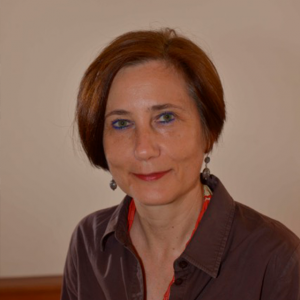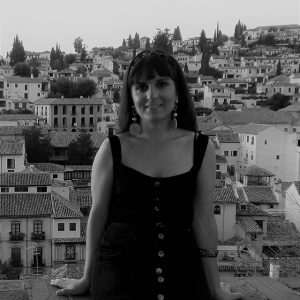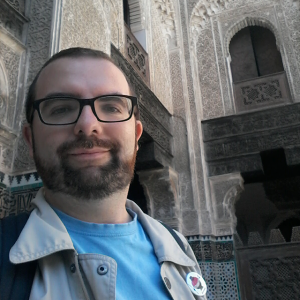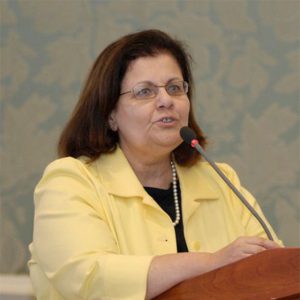PRINCIPAL INVESTIGATOR:
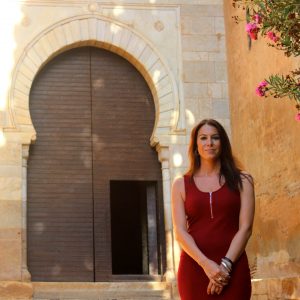
Dra. Bárbara Boloix Gallardo
PROFESSOR HIRED DOCTOR OF ARAB AND ISLAMIC STUDIES of the UNIVERSITY OF GRANADA (SPAIN)
Her main field of study is the History of Al-Andalus and the Maghreb and, in a special way, the History of the Nasrid Kingdom of Granada (XIII-XV centuries). Within this field she has researched on different aspects, including historiography, politics, society and culture. She has devoted various works and contributions in congresses to the theme of both Nasrid and Marinid women, among which are the following: “Revealing new family ties of the Nasrid dynasty in the thirteenth century: Amat al-‘Azaz and the Bano’uudayr de Crevillente” (2011), Las Sultanas de la Alhambra. The Great Unknowns of the Nazari Kingdom of Granada (XIII-XV centuries) (2013), “Beyond the Hram. Ibn al-Khaabab and his Privileged Knowledge of the Royal Nasrid Women” (2014), “The Feminine Face of the Power of the Nasrid Woman in the Courtly Politics of the Alhambra (XIII-XV Centuries)” (2015), “Presence and Importance of Women in the Musnad by Ibn Marz-q al-Tilims-n” (2016), “Woman and power in the Nasrid Kingdom of Granada: Feima bint al-A’mar, the central pearl of the necklace of the dynasty (14th century)” (2016) and “Fés, rencontre entre sultanes nasrides et mérinids” (2016).
More information:
https://granada.academia.edu/BAR…..
http://www.cabei.es/miemb…
INVESTIGATION GROUP:

Dra. María José Cano Pérez
PROFESSOR CATHEDRATIC OF HEBREW AND ARAMAIC STUDIES of the UNIVERSITY OF GRANADA (SPAIN). FORMER DIRECTOR AND MEMBER OF THE UNIVERSITY INSTITUTE FOR PEACE AND CONFLICT RESEARCH AT UGR
In her research career she has joined three main fields of interest: the Jewish world, women in Judaism and peace studies. In recent decades she has paid special attention to the study of relations and contacts between Jewish, Christian and Muslim cultures through there texts and the Sephardic world. She has directed her Doctoral Thesis on the theme of Sephardic women, an area to which she has also dedicated publications such as “Bibliography of Women in Hebrew Hispanic Literature” (1993), “Other Cultures, other women: the Jewish woman” (1999), “The Grenadine Jewish women in the Sixteenth Century” (2000), “The Ostentation of Women according to Spanish-Hebrew Literature” (2010) and “The Warrior Woman in the Sephardic Romance of the Mediterranean Area” (2010).
More information:
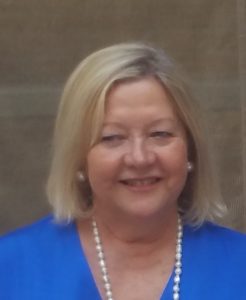
Dra. Celia del Moral Molina
PROFESSOR CATHEDRATIC OF ARAB AND ISLAMIC STUDIES AT THE UNIVERSITY OF GRANADA (SPAIN). DIRECTOR OF THE RESEARCH GROUP ANDALUSIAN CITIES UNDER ISLAM OF THE UNIVERSITY OF GRANADA
Specialist in classical Arabic literature, her research has focused mainly on the study of Andalusian literature and its aspects of poetry and prose, and within it, that generated in the Nasrid Kingdom of Granada (XIII-XV centuries). Within this area, she has paid great attention to both the presence and role of women in medieval Arab literary production, highlighting in this regard the following contributions: “The image of women through Andalusian Arab poets (1990th-century VIII-XV century)” (1990), Arabs, Jews and Christians. Women in Medieval Europe (1993) “female poetry, male poetry: the difference of gender in Andalusian lyrics” (1993), “Bibliography for the study of women in the medieval Arab world, with special reference to Al-Andalus” (in collaboration with Nadia Lachiri, 1993), “Arab Woman in Andalusia during the Middle Ages. State of the question of the works published so far” (1991), “Contribution to the Study of Women from Andalusian Literary Sources” (1998), “Female Archetypes and Stereotypes through Andalusian poetry” (2006), “The Risla of Ibn al-Khatib to Ibn Khald’n on the occasion of his marriage to a Christian captive” (in collaboration with Fernando Velázquez Basanta, 2011).
More information:
http://www.cabei.es/miembros-del-gr…
https://granada.academia.edu/Celia…
OUR GROUP:
Dra. Antonella Ghersetti
PROFESSOR HOLDER OF ARABIC LANGUAGE IN CA’ FOSCARI UNIVERSITY OF VENICE (ITALY)
Her main field of research is medieval (adab) literature and pre-modern Arabic narrative, Arabic linguistic tradition and classical Arabic legacy (physiognomy) existing in these traditions. Among the publications in which she has addressed the theme of the Mameluca woman are “The representation of slave girls in a physiognomic text of the fourteenth c.” (in press) and “Representations of women in the Maml’k period” (in press).
More information:
Desirée López Bernal
NTERINA SUBSTITUTE PROFESSOR OF ARAB AND ISLAMIC STUDIES of the UNIVERSITY OF GRANADA (SPAIN)
She has been developing several lines of research in relation to classical Arabic literature in The Mashreq and al-Andalus, such as: the study of medieval Arabic humor literature, the prose of adab and the transmission of Arabic literature to letters and universal folklore, with special emphasis on the stories shared between Arab, Spanish and other European narratives, from the Middle Ages to the present day. Relating to Arab women, she has approached her study from a literary perspective, focusing on analyzing her presence and role in works by adab al-fukoha or adab of a humorous kind. Her initial foray into the subject was during her doctoral thesis (The Ḥadāʼiq al-azāhir de Abū Bakr ibn ʻĀṣim al-Garnāṭī.Translation and study of a literature work in Nasrid Grenada,2016), in a chapter dedicated to women where it is also a question of making known – broadly speaking – what are the main themes around which the jokes that are said about them and the female archetypes and stereotypes they reproduce revolve.
More information:
https://ugr.academia.edu…
http://www.cabei.es/
http://semiticos.ugr.es/pages/est…
Dra. Tsampika Paraskevá
Independent Researcher (Greece)
Degree in Hispanic Philology and PhD in Arab and Hebrew Cultures. She currently works as an independent researcher. Her research and publications concern the lives of slaves in the medieval Mashreq and, in particular, the singing slaves (qiyan). Also, during the years 2017-2018 she completed a postdoctoral research stay at the University of Hamburg (Germany). Her research is based mainly on Arab literary and lexicographical sources, records in which she traces the female presence in both pre-Islamic and Islamic times.
Alejandro Pérez Ordóñez
MEMBER OF THE LABORATORY RESEARCH GROUP OF ARCHAEOLOGY AND ARCHITECTURE OF THE CITY (LAAC, CSIC, GRANADA, SPAIN)
Archaeologist, art historian and heritage interpreter. He has addressed the issue of Andalusian women since the research of Islamic domestic architecture, especially The Nasrid and Moorish, interpreted it from the family and social model to which her typology responds and integrating it into the urban model of the medinas and the suburbs of Al-Andalus and the medieval Maghreb.
In this line of work stand out his publications “Late and Moorish Domestic Architecture: Approach to the Family Model and its Embolism in Architecture and Urbanism from the 13th to the 16th Centuries” (2008), “Some Notes on women in the Andalusian house” (2009), “The Role of Women in the Family in Nasrid Times (XIII-XV Centuries): Towards an Analytical Synthesis of Documentary and Archaeological Sources” (2011) , “Daily life: Andalusian housing through Archaeology in the province of Malaga” (2018) and “Domestic and artisanal architecture of the Andalusian suburb of Estepona (Malaga)”.
More information at:
https://www.eea.csic.es/laac/sob…/
http://independentresearcher.academ…
https://es.linkedin.com/in/alej…
Dra. Maya Shatzmiller
PROFESSOR OF HISTORY AT WESTERN UNIVERSITY (ONTARIO, CANADA)
Specialist in social, cultural and economic history of the medieval Islamic world, a subject to which she also devotes her teaching and in which she has directed research papers and doctoral theses. Among her fields of study are the Marinid Kingdom of Fes and the Nasrid Kingdom of Granada, whose societies she has studied in works such as Her Day in Court: Women’s Property Rights and Islamic Law in Fifteenth Century Granada (2007), The Berbers and the Islamic State: The Marinid Experience in Pre-protectorate Morocco (2000). The theme of women has also dedicated “The Female Body in Islamic Law and Medicine: Obstetrics, Gynecology, and Pediatrics” (2013), “Women and Wage Labour in the Medieval Islamic West: Legal Issues in an Economic Context” (1997), “La femme et la conversion a l’Islam: aspects juridiques et sociaux” (1997), “Marriage, Family, and the Faith: Women’s Conversion to Islam,” (1996), “Women and Property Rights in al-Andalus and the Maghrib: Social Patterns and Legal Discourse”, (1995), “The image and social status of urban labour in al-Andalus” (1989) and “Aspects of women’s participation in the economic life of later medieval Islam: Occupations and Mentalities” (1988).
More information:
Dra. Amira Sonbol
PROFESSOR CATHEDRATIC OF HISTORY AT GEORGETOWN UNIVERSITY (QATAR)
Specialist in modern Egyptian history, Islamic history and law, women, gender and Islam. She is currently the editor-in-house editor of Hawwa magazine: the Journal of Women of the Middle East and the Islamic World, published by Brill as well as co-editor of Islam and Christian-Muslim Relations ,a quarterly journal co-published in collaboration with Selly Oak Colleges (United Kingdom). She teaches courses in Modern Egypt History, Women and Law, and Islamic Civilization. On these lines of research she has published several works, including Women, the Family and Divorce Laws in Islamic History (1996), Beyond the Exotic: Women’s Histories in Islamic Societies (2007) and Women of Jordan: Life, Work and Law (2002).
More information:
Dr. Josef Ženka
SSISTANT PROFESSOR DOCTOR OF ARAB AND ISLAMIC STUDIES OF UNIVERZITA KARLOVA (PRAGUE, CZECH REPUBLIC)
His main lines of research are the history of the Islamic world in the formative and intermediate times, Al-Andalus and the Maghreb (XIII-XVI centuries), Andalusian and Grenadian manuscripts (XIII-XVI centuries), and A. R. Nykl and the history of Orientalism. He is currently working on a draft book on the idea of religious leadership in late Andalusian society based on the life and works of the supreme cadi Judge Aba ‘Amr ibn Manẓur (d. 1483). Since 2013 he has worked extensively on Grenadian and Andalusian manuscripts. His most recent publications include “A Manuscript of the Last Sultan of Al-Andalus and the Fate of the Royal Library of the Nasrid Sultans at the Alhambra” (2018). He has also edited two volumes on Nykl’s autobiography (2016 and 2017), on which he is currently finalizing a book.
More information:
https://kbv.ff.cuni.cz/cs/lide/…
https://cuni.academia.edu/Josef%C5%BDenka
http://www.cabei.es/miembros-del…
